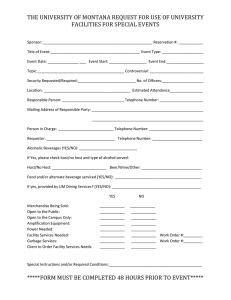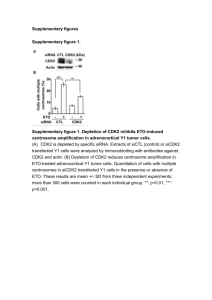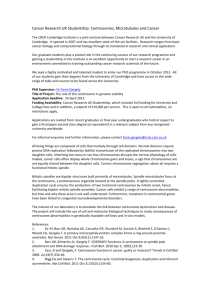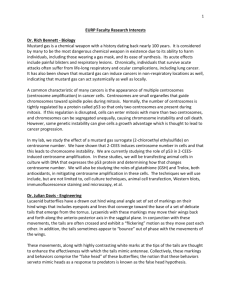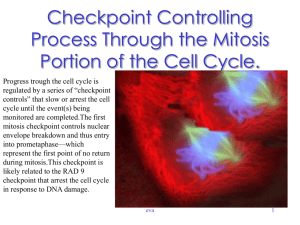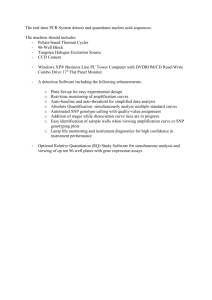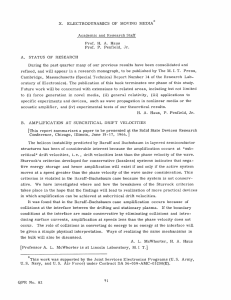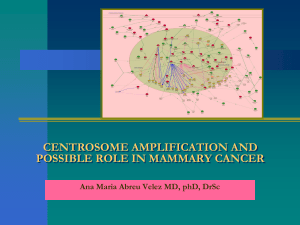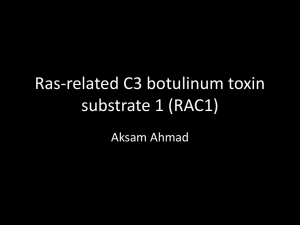Oncogene-like induction of cellular invasion from centrosome amplification Dr Susana Godinho
advertisement
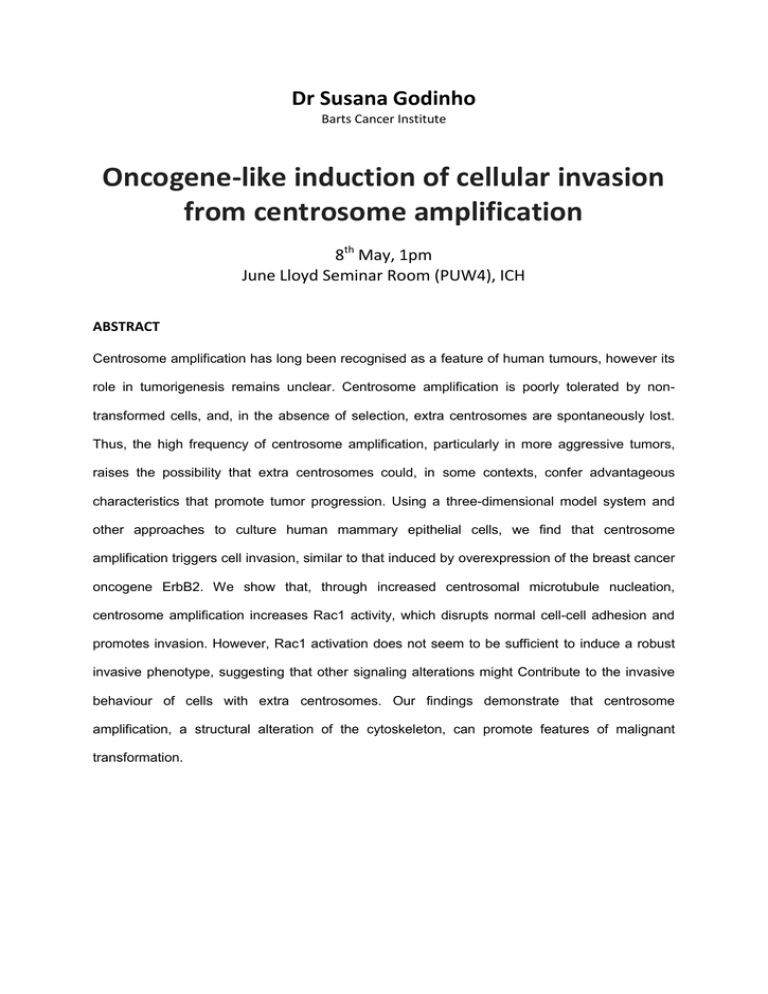
Dr Susana Godinho Barts Cancer Institute Oncogene-like induction of cellular invasion from centrosome amplification 8th May, 1pm June Lloyd Seminar Room (PUW4), ICH ABSTRACT Centrosome amplification has long been recognised as a feature of human tumours, however its role in tumorigenesis remains unclear. Centrosome amplification is poorly tolerated by nontransformed cells, and, in the absence of selection, extra centrosomes are spontaneously lost. Thus, the high frequency of centrosome amplification, particularly in more aggressive tumors, raises the possibility that extra centrosomes could, in some contexts, confer advantageous characteristics that promote tumor progression. Using a three-dimensional model system and other approaches to culture human mammary epithelial cells, we find that centrosome amplification triggers cell invasion, similar to that induced by overexpression of the breast cancer oncogene ErbB2. We show that, through increased centrosomal microtubule nucleation, centrosome amplification increases Rac1 activity, which disrupts normal cell-cell adhesion and promotes invasion. However, Rac1 activation does not seem to be sufficient to induce a robust invasive phenotype, suggesting that other signaling alterations might Contribute to the invasive behaviour of cells with extra centrosomes. Our findings demonstrate that centrosome amplification, a structural alteration of the cytoskeleton, can promote features of malignant transformation.
